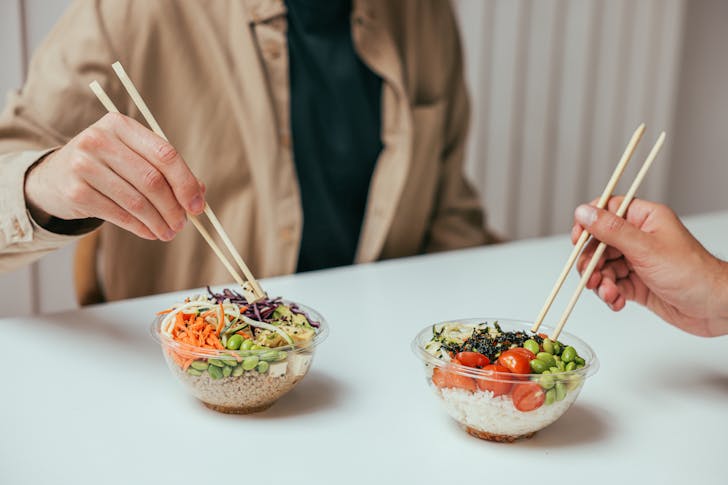It is often said that you are what you eat. Is that true? How much does diet shape our health? Identical twins Carolyn Sideco and Rosalyn Moorhouse put that idea to the test when one went vegan while the other stuck to an omnivore diet. Their experience, part of a Stanford Medicine study, was documented in Netflix’s “You Are What You Eat.” The results? Eye-opening.
Carolyn followed a strictly vegan diet for eight weeks, while Rosalyn continued eating both plant and animal-based foods. Both diets focused on whole foods and minimized processed ingredients. This setup let researchers compare the impact of diet alone without genetics muddying the results. And the changes started fast.
The First Four Weeks on a Vegan Diet

The Gate / Earlier in the study, the researchers noticed a substantial difference between the vegan and non-vegan twin.
Within just a month, the differences were clear. Those on the vegan diet, including Carolyn, saw major drops in their LDL cholesterol—the so-called “bad” cholesterol. Their insulin levels decreased, and they lost weight, all key factors in cardiovascular health.
By the study’s halfway point, LDL cholesterol for vegans had dropped to 95.5 mg/dL, while omnivores measured 116.1 mg/dL. The ideal level is below 100 mg/dL, so the vegans were right in the sweet spot. Fasting insulin levels also fell by 20%, and participants on a vegan diet lost an average of 4.2 pounds.
Keep in mind that these numbers were not just minor shifts. They showed real, measurable benefits.
The participant on the vegan diet reported feeling lighter, more energetic, and less sluggish throughout the day. The twin even noted improved digestion and better sleep.
The Full Eight Weeks: Vegan Diet vs. Omnivore
By the end of the experiment, the vegan group continued to show better heart health markers. Weight loss remained steady, and insulin resistance stayed lower than their omnivore counterparts. However, perhaps the most interesting thing was how both twins reacted once the study was over.
Carolyn, who went vegan, returned to an omnivore diet - but not in the same way. She now includes more plant-based meals, having seen firsthand how quickly diet changes can improve health. Rosalyn, the omnivore twin, also started eating more plant-based meals. While neither stuck with full-time veganism, the experiment changed how they thought about food.

Cup of Couple / Pexels / Although the research doesn’t want you to go vegan through and through, it does suggest that a plant-based diet is the healthier option.
What This Means for You
Going 100% vegan is not for everyone. Dr. Christopher Gardner, senior author of the study, acknowledges that strict veganism can be tough. But he stresses that adding more plant-based foods to your diet - even without going fully vegan - can make a huge difference in your health.
The biggest takeaway? Small changes matter. Swapping out processed foods and increasing whole plant-based meals can lower cholesterol, improve insulin sensitivity, and even help with weight management. Even if you are not ready to give up animal products entirely, moving toward a more plant-focused diet could be one of the best things you do for your heart.
So, do you have to go full vegan? Maybe not. But if you are looking for better heart health, science says eating more plants is a smart place to start.




